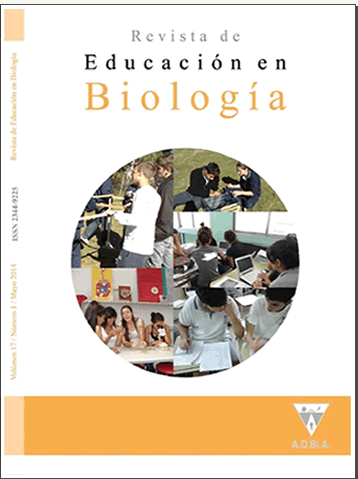La argumentación científica escolar y su contribución para el aprendizaje de un modelo complejo de salud y enfermedad
Contenido principal del artículo
Resumen
Este trabajo aborda la relación existente entre el aprendizaje de la argumentación
científica escolar y la adquisición de un modelo complejo en torno a la salud y la
enfermedad, más específicamente para la explicación de la emergencia o reemergencia de
las enfermedades. Se asume que la argumentación científica escolar es un procedimiento
cognitivo lingüístico que da lugar a la producción de un texto que explica, en el que pueden
reconocerse cuatro componentes: pragmática, retórica, teórica y lógica. Se realizó un
análisis histórico-epistemológico del concepto de salud y se tomó posición por un modelo
complejo que hemos denominado multicausal y multirreferencial. Se diseñó una unidad
didáctica para la enseñanza de ambos contenidos con énfasis en procesos metacognitivos
y autorregulatorios puestos en marcha a través de bases de orientación, e instancias
de autoevaluación, coevaluación y heteroevaluación. El estudio realizado se alinea en un
modelo de explicación ilocutivo.
científica escolar y la adquisición de un modelo complejo en torno a la salud y la
enfermedad, más específicamente para la explicación de la emergencia o reemergencia de
las enfermedades. Se asume que la argumentación científica escolar es un procedimiento
cognitivo lingüístico que da lugar a la producción de un texto que explica, en el que pueden
reconocerse cuatro componentes: pragmática, retórica, teórica y lógica. Se realizó un
análisis histórico-epistemológico del concepto de salud y se tomó posición por un modelo
complejo que hemos denominado multicausal y multirreferencial. Se diseñó una unidad
didáctica para la enseñanza de ambos contenidos con énfasis en procesos metacognitivos
y autorregulatorios puestos en marcha a través de bases de orientación, e instancias
de autoevaluación, coevaluación y heteroevaluación. El estudio realizado se alinea en un
modelo de explicación ilocutivo.
Detalles del artículo
Cómo citar
La argumentación científica escolar y su contribución para el aprendizaje de un modelo complejo de salud y enfermedad. (2014). Revista De Educación En Biología, 17(1), (pp. 145-148). https://doi.org/10.59524/2344-9225.v17.n1.22423
Sección
Tesis

Esta obra está bajo una licencia internacional Creative Commons Atribución-NoComercial-CompartirIgual 4.0.
Aquellos autores/as que tengan publicaciones con esta revista, aceptan los términos siguientes:- Los autores/as conservarán sus derechos de autor y garantizarán a la revista el derecho de primera publicación de su obra, el cuál estará simultáneamente sujeto a la Licencia de reconocimiento de Creative Commons que no se permite un uso comercial de la obra original ni de las posibles obras derivadas, la distribución de las cuales se debe hacer con una licencia igual a la que regula la obra original.
- Los autores/as podrán adoptar otros acuerdos de licencia no exclusiva de distribución de la versión de la obra publicada (p. ej.: depositarla en un archivo telemático institucional o publicarla en un volumen monográfico) siempre que se indique la publicación inicial en esta revista.
- Se recomienda a los autores/as difundir su obra a través de Internet (p. ej.: en archivos telemáticos institucionales o en su página web) después del proceso de publicación, lo cual puede producir intercambios interesantes y aumentar las citas de la obra publicada. (Véase El efecto del acceso abierto).
Cómo citar
La argumentación científica escolar y su contribución para el aprendizaje de un modelo complejo de salud y enfermedad. (2014). Revista De Educación En Biología, 17(1), (pp. 145-148). https://doi.org/10.59524/2344-9225.v17.n1.22423

